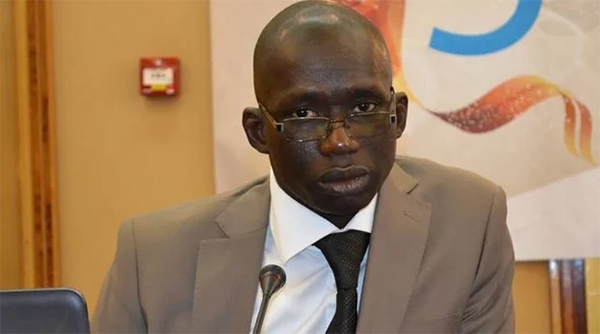Regulation of digital broadcasting: Appel ‘disconnects’ the CNRA

The Association of Digital Media Publishers and Professionals (Appel) agrees with the National Broadcasting Regulatory Council (CNRA) on the need to comply with Article 94 of the Press Code. However, the Association reminds the relevant authorities that the CNRA is obsolete and can no longer regulate a sector taken over by digital technology. The Association calls for an update of the regulatory whilst ‘reiterating’ and ‘asks’ all its members and players in the digital media ecosystem not to comply with the CNRA’s ‘injunction’.
The National Broadcasting Regulatory Authority (CNRA) has thrown a spanner in the works by giving media outlets a 30-day ultimatum to comply with Article 94 of the Press Code, prompting a reaction from the Association of Digital Media Publishers and Professionals (Appel). In a press release, the national executive board of Appel expressed its surprise at the timing of CNRA’s ultimatum, pointing out that the regulatory body had the opportunity to address these issues much earlier, during consultations organised with traditional radio and television stations in February 2021. “They had time to organise consultations with traditional radio and television stations in February 2021, and to sign agreements and specifications with their management. Why weren’t online media publishers, particularly Web TV and Web radio publishers, invited to these talks?” asked Appel.
Control of the communications sector: The State tightens the screws
Appel agrees with the principle of regulating the online media sector, but points out a few truths. “Online media publishers want to comply with the law. They have never stopped saying so. However, they are calling on the new authorities to reopen discussions on the Harca preliminary draft, which is with the General Secretariat of the Government, so that the necessary updates can be made. Now is the time to begin this work, which will make a major contribution to the standardisation of the media sector,” indicated the press release.
Appel’s defiance
According to the national executive board of Appel, the CNRA is no longer able to regulate a sector dominated by digital technology. “Article 94 of the Press Code refers to broadcasting communication, whatever the technology used. However, CNRA was created by Law 2006-04 of 4 January 2006. At the time, the online media was in its infancy and social media were not yet as developed in Africa. To date, these texts have not been updated, despite the provisions of the Press Code”, lament the comrades of Ibrahima Lissa Faye. However, Appel also calls for an ‘urgent’ update to normalise the media sector, and has called on its members and players in the digital media ecosystem not to comply with CNRA’s injunction. “Appel has always taken the principled position of reminding the relevant authorities that CNRA is obsolete and can no longer regulate a sector in which digital technology has become the dominant force. It reiterates this position and calls on all its members and players in the digital media ecosystem not to comply with CNRA’s injunction”, the document states.
Read the column – The ruins of the Republic, the media in agony: roller coaster of emotions
L’Appel souligne également les lacunes du cadre légal actuel, arguant que l’article 94 du Code de la presse manque d’encadrement pratique en ce qui concerne sa mise en œuvre. «Au-delà des normes, l’Appel estime que ce communiqué du Cnra devrait être précédé par des discussions afin d’étudier, avec les acteurs, les pièces et modalités de mise en œuvre de l’article 94 du Code», souligne le document. Par ailleurs, les éditeurs et professionnels de la presse en ligne estiment ainsi que le Code de la presse, qui est fortement en avance sur les textes du Cnra, propose la «création d’un nouvel organe de régulation adapté au contexte et aux enjeux de l’heure». Il faut le rappeler, l’avant-projet de loi instituant la Haute autorité de régulation des communications audiovisuelles (Harca) a déjà été adopté par consensus par les acteurs du secteur, le ministère de la Communication, et même des membres du Cnra qui ont «tous convenu qu’il faut désormais une régulation transversale, une autorité qui coiffe tous les types de médias avec des prérogatives étendues qui permettent de mettre de l’ordre durablement dans la profession». Cette conviction, précise l’association, est «davantage motivée par l’article 229 dudit Code».
[themoneytizer id= »124208-2″]
Highlighting the shortcomings of the current legal framework, Appel argues that Article 94 of the Press Code lacks a practical framework for its implementation. “In addition to standards, Appel believes that CNRA’s press release should be preceded by discussions with stakeholders to examine the details and procedures for implementing Article 94 of the Code”, the document stressed. Appel also believes that the Press Code, which is well ahead of CNRA’s texts, proposes the “creation of a new regulatory body adapted to the current context and challenges.” The draft bill establishing the High Authority for the Regulation of Audiovisual Communications (Harca) has already been adopted by consensus by players in the sector, the Ministry of Communication, and even members of CNRA, who have “all agreed that going forward, what is needed is cross-sector regulation, an authority that oversees all types of media with extensive prerogatives that will make it possible to bring lasting order to the profession.” The Association says that this conviction is “further motivated by article 229 of the Code.”
By Ousmane SOW

